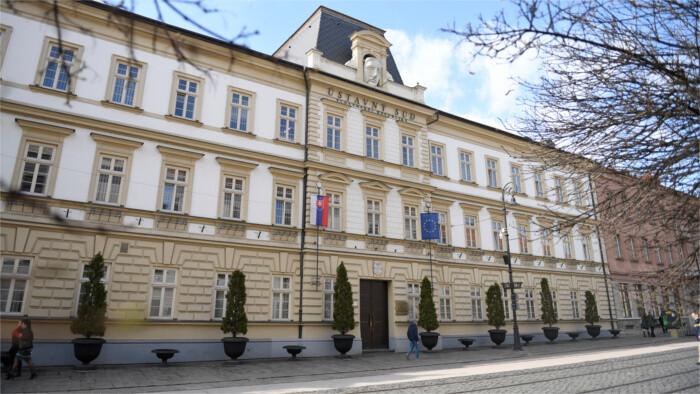The Constitutional Court ruled that the majority of the Penal Code
provisions are in accord with the Slovak Constitution, but not all of
them.
Prime Minister Robert Fico (Smer-SD) welcomes and respects Wednesday's decision by the Constitutional Court and on behalf of the entire governing coalition asks for an apology from former president Zuzana Caputova, the opposition, media and NGOs, TASR learnt from Fico's post on a social network. He wants to hear an apology for the "displays of hatred and the organising of seditious public protests" over the amendment to the Penal Code, which scrapped the Special Prosecutor's Office, introduced lighter punishments for corruption and shortened statutes of limitations. "The bill has prioritised the compensation for victims of crimes and made other inevitable changes to the penal policy," he added.
"It's the duty of the governing coalition to deal with those parts of the amendment deemed unconstitutional by the court and the duty of the opposition to respect that several parts of its complaint were turned down by the constitutional judges," claimed President Peter Pellegrini.
In the view of Justice Minister Boris Susko, the Court’s decision means that there can be no doubt that Slovakia has a modern Penal Code comparable to developed European democracies.
The chair of the largest opposition party PS, Michal Simecka, respects the decision by the Constitutional Court on the amendment to the Penal Code, but feels saddened that it has paved the way for the government to accomplish its goals, such as introducing lighter punishments and shortened statutes of limitations for thieves, corrupt officials and other criminals.
NGOs respect the decision, but that does not mean that the new legislation is also beneficial for Slovakia, the Let's Stop Corruption Foundation declared on Wednesday.
The mix of tools designed to make the penal policy more lenient will lead to an erosion in the state's capability to prosecute corruption and economic crimes, warned Transparency International Slovensko. "What we find problematic is also the fact that it's impossible not to see behind the changes that have been passed an effort by the governing coalition to put its own people beyond the reach of the law. Several of them [criminally prosecuted -ed.note] even directly participated in the drafting of the amendment," added the NGO.
TASR
Martina Šimkovičová Greňová, Photo: TASR

